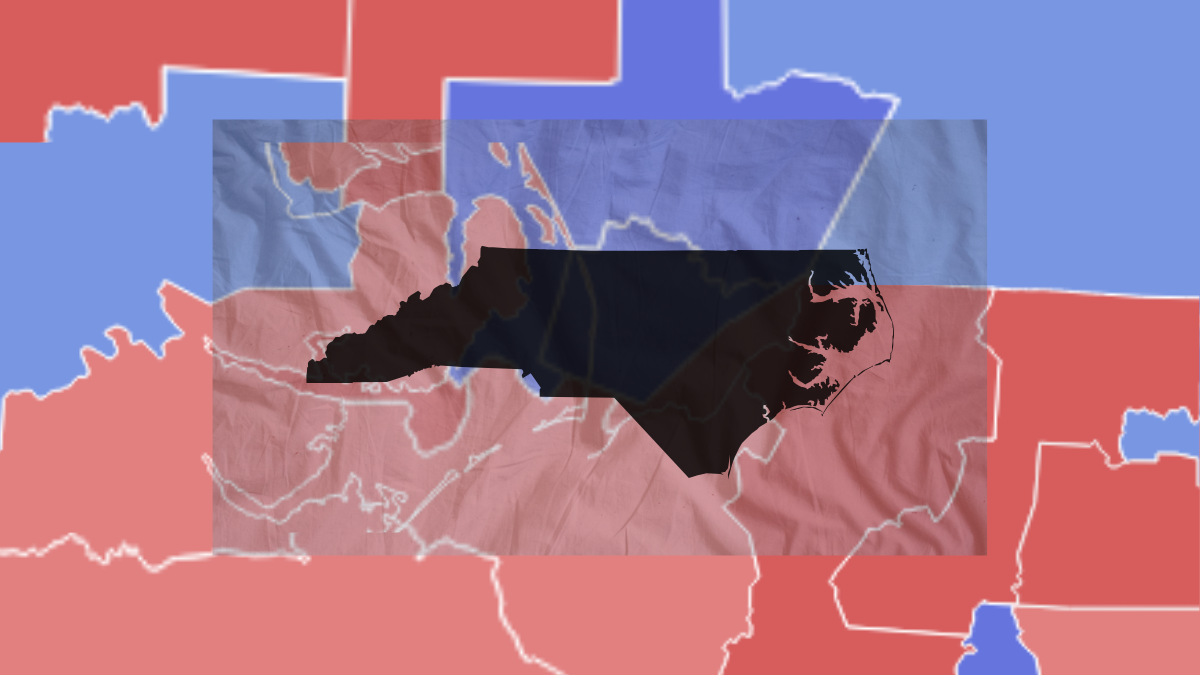North Carolina’s Republican-crafted electoral maps are headed to trial as opponents contend they illegally gerrymandered the state’s Black voters, and other members of racial and ethnic minority groups, into districts meant to dilute their voting power.
Two separate lawsuits filed in December 2023 – the first over congressional districts and the second over congressional and legislative districts – were consolidated for the trial that began on June 16 in Winston-Salem.
The lawsuits claim that lines are so skewed for GOP candidates that many Black voters cannot elect their preferred candidates, violating the Voting Rights Act. They allege the mapmakers at times submerged or spread out Black voting blocs, which historically have favored Democrats, into surrounding districts with White majorities — benefiting Republicans.
The plaintiffs point to the Piedmont Triad region as one example, where the cities of Greensboro, High Point, and Winston-Salem are located. They said Republicans split the region’s concentrated Black voting population within multiple U.S. House districts.
Overall, the plaintiffs are challenging 6 of 14 congressional districts, 9 of 120 state House districts, and 5 of 50 state Senate districts. The challenged districts span much of the state’s geography, from Wilmington to Charlotte and Greensboro.
“This was an effort to spread those voters across districts,” said Jonathan Rodden, a Stanford University redistricting expert who testified for some plaintiffs about congressional boundaries. Rodden said the results were less compact districts that make it harder for voters within them to act collectively toward a common policy goal.
The lines were used in the 2024 elections, after which Republicans kept General Assembly majorities and flipped three U.S. House seats held by Democratic incumbents who didn’t seek reelection because they decided the recast district made winning impossible. Those seat flips, which turned a 7-7 delegation into one with a 10-4 Republican advantage, helped the GOP keep narrow control of the U.S. House.
Favorable rulings for the plaintiffs could force Republicans to redraw maps for the 2026 elections, making it harder to retain their partisan advantage. Otherwise, the districts could be used through the 2030 elections.
Statewide races in North Carolina are close, and Democrats have held the governor’s mansion for most of the past 30 years. But Republicans have controlled the General Assembly — and thus redistricting — since 2011. Redistricting maps can’t be blocked by a governor’s veto.
“Redistricting is about power. Who gets it. Who keeps it, and who ultimately gets left out,” Da’Quan Love, executive director of the state NAACP, told reporters.
“Too often, Black communities in our state are carved up, silenced, and sidelined by maps drawn not to represent us, but to restrict us,” he said. “When politicians use gerrymandering to divide our neighborhoods and weaken our votes, they’re not just manipulating the process, they are rigging the outcomes.”





